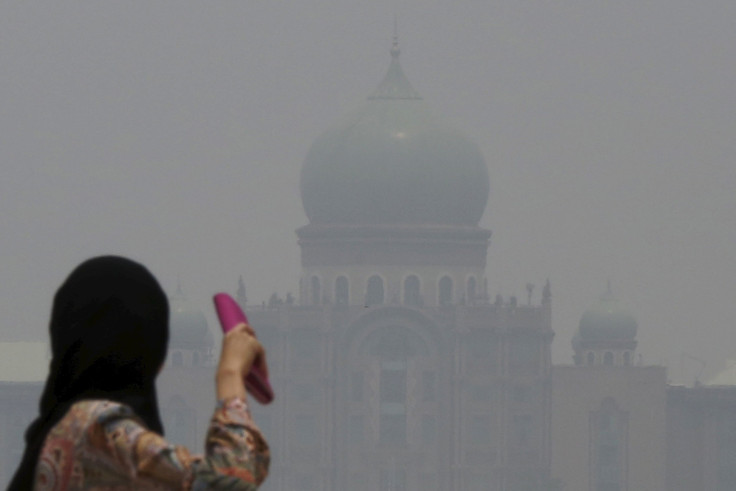Indonesia Haze Update: Malaysian Muslims Pray For Forest Fires To End In Southeast Asia

As a thick haze continued to blanket Southeast Asia this week, religious leaders were asking their followers to pray for relief, even scheduling dedicated worship sessions in hopes of attracting divine intervention. Muslims in Malaysia were encouraged to pray for the haze, which has canceled school and presented health concerns for residents, to stop soon, Agence France-Presse reported Thursday.
"Our country is facing a continuing haze phenomenon. It has created fear and concern among the people due to its health impact," Dato 'Hj Othman Bin Mustapha, the director of the country's department of Islamic development, reportedly wrote on Facebook. "The aim is to pray that the haze we are facing will end quickly."
The haze began threatening countries like Malaysia and Singapore last month after Indonesia began burning forests as part of its slash-and-burn agriculture system, which involves clearing large swaths of land for palm oil and rubber plantations. Thousands of firefighters have been called in to help battle the flames, but the smoke persisted. Scientists estimated the hazy conditions would extend into November, according to previous International Business Times reporting.
Mustapha wasn't the first Malaysian to invoke religion in fighting the haze. Late last month, a video went viral of faith healer Ibrahim Mat Zin performing a ritual that involved a block of ice and a steel pot, the Straits Times reported. "We pray that with the ice block placed on this pot, this ritual will help the people in Malaysia receive light and clean air," he said.
Prayer is a common response to the haze, which occurs annually but has proven worse this year due to climate conditions. In 2013, mosques in Malaysia organized meetings to pray for rain. About 60 percent of Malaysia's roughly 28 million people are Muslim. "When something like this happens, we have to ask for God's help," then-Prime Minister Abdullah Ahmad Badawi told reporters in 2005.
© Copyright IBTimes 2024. All rights reserved.












